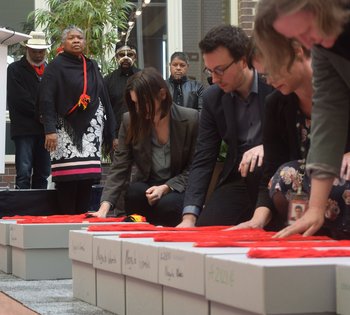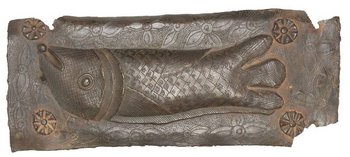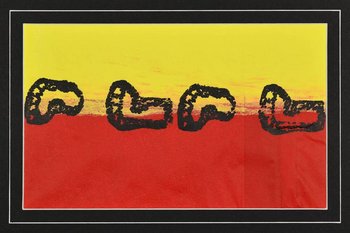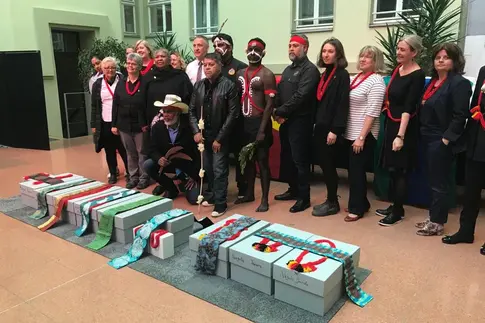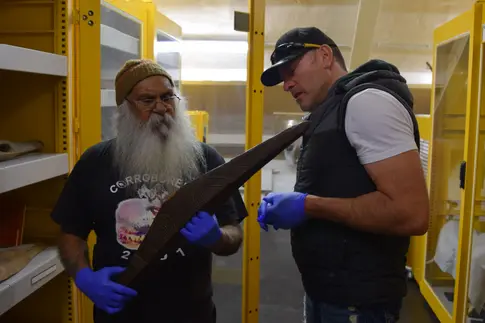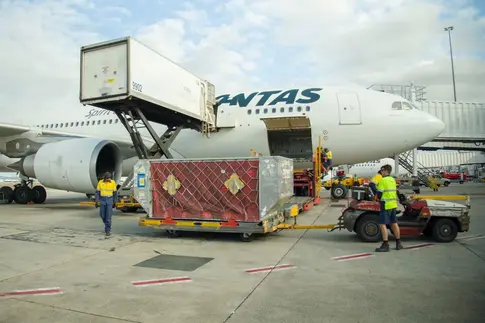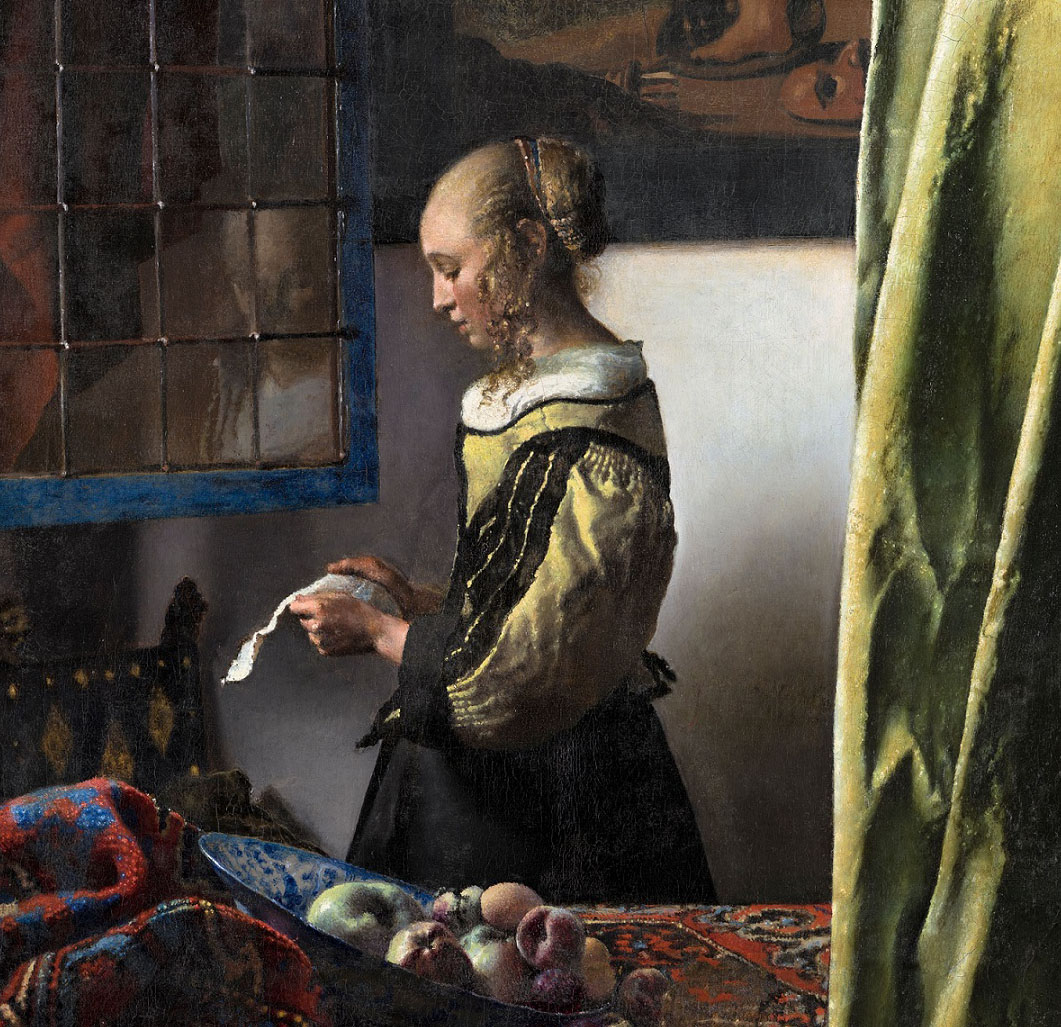Please be advised: This website contains images of repatriations, including stories and images of people who are now deceased.
The SES Decolonize website aims to provide a platform of transparency on museum practices. This may include sensitive material that has impacted communities, families, and individuals. We acknowledge the necessity to respond sensitively and appropriately in cases when this material may be confronting to Indigenous visitors and colleagues.
If you wish to provide feedback on the SES Decolonize Portal please feel free to contact us.
Read more